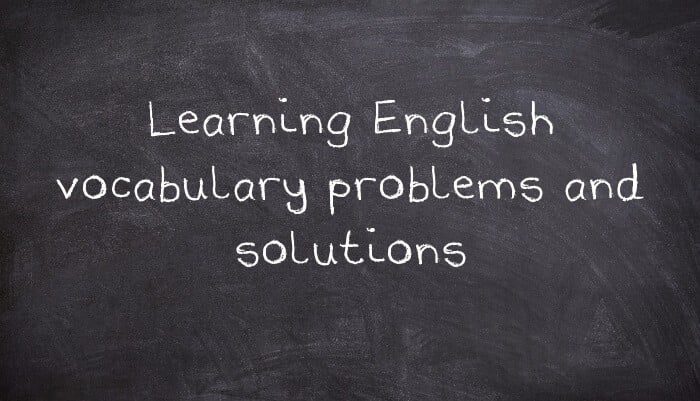Learning vocabulary is essential for improving your English language skills. This article addresses common issues people face when learning English words and expressions.
I’m not sure which vocabulary I should learn
It’s best to focus on vocabulary that is relevant to your level and not waste time on unnecessary words. Using a learner’s dictionary and reading materials suited to your level can help you prioritize useful vocabulary.
I can’t remember vocabulary that I know I looked up before
Develop a system for reviewing vocabulary multiple times, such as using flashcards or electronic dictionary features to reinforce your memory.
I’ve forgotten vocabulary which I memorised before
Regular exposure to English through reading and listening can help reinforce vocabulary you’ve learned in the past. Engaging with similar content can also aid in retention.
I have too much vocabulary to learn/ My vocabulary list is too long
Implement a system for removing learned vocabulary from your list to prevent it from becoming overwhelming. Focus on quality over quantity when adding new words.
I never look at my vocabulary lists
Make your vocabulary learning process more engaging by actively tracking your progress and ensuring your list remains manageable.
I get bored if I stop to look up what vocabulary means
Avoid interrupting your reading or listening too frequently to look up unfamiliar words. Instead, make note of them and review them in batches to maintain engagement.
It’s difficult to learn phrasal verbs
Approach phrasal verbs like any other vocabulary and focus on understanding their meanings. Look for patterns or commonalities to aid in comprehension.
I want to avoid translation, but I’m not sure how to learn vocabulary without it
Utilize English-English resources like definitions, example sentences, synonyms, and opposites to learn new vocabulary without relying heavily on translation.
I find it hard to use an English-English dictionary
Select a dictionary appropriate for your level and familiarize yourself with its features. Don’t hesitate to use bilingual dictionaries when needed.
Most of the things that I don’t understand are not in a dictionary
If you encounter unfamiliar terms, consider using an encyclopedia alongside your dictionary to enhance your understanding.
I can’t use the vocabulary that I know when I speak
Practice using new vocabulary in writing and conversation to improve your ability to recall and use it effectively.






